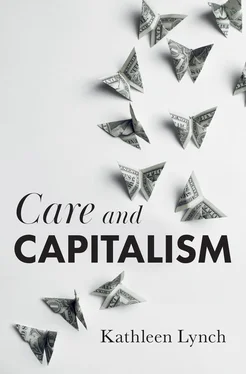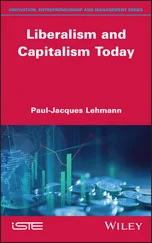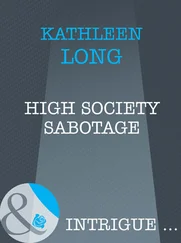As the atomistic vision of the self is closely aligned with neoliberal capitalism, one of the first tasks is to put the relational self at the centre of meaning-making, to move beyond the idea of the separated, bounded and self-contained self. The goal is to develop a political and cultural appreciation of how the self is co-created, through struggles and negotiations in relationships, for better or worse, both collectively and individually (Herring 2020).
People are not only economic and political agents, but cultural and relational actors; they are involved in nurturing, loving, hating, fighting, relating and co-creating each other. The selves they become ‘can only exist in definite relationships to other selves’ (Mead 1934: 164). 4Recognizing relationality and interdependency helps reclaim the language and logics of care that make people up in nurturing terms. It helps enhance an appreciation of affective relations in giving meaning and purpose to everyday life, and it enables an appreciation of the interdependencies of humans, not only on each other, but also on non-human animals, other living species and the Earth itself.
The affective care domain of life gives people direction and purpose in their daily lives and is central to how they define themselves. The primary love relations within families/households are what first create people in their humanness. This primary nurturing and co-creating work (what I have called love labour : Lynch 1989a, 2007) is complemented by the secondary caring relations of schools and local communities that are created, in turn, by adults caring for each other as friends, neighbours, colleagues and, ultimately, as strangers at the political level, through showing solidarity for the unknown other (Lynch and Kalaitzake 2018). A society that is not caring cannot create people who are flourishing, as ‘citizens are produced and reproduced through care’ (Tronto 2013: 26), and individuals cannot flourish without love, as it is fundamental to their ‘subjective and objective well-being’ (Gheaus 2017: 743). 5Although the nurturing values that underpin care relations are generally politically domesticated and silenced, naming and claiming them can help reinvigorate resistance to neoliberalism. It can create a new language and a new set of values and priorities for politics.
As became evident during the Covid-19 pandemic, even in a capitalist society people are often moved by motives arising directly from consideration of the claims of others. Because relationality feeds into morality within people, this enables them to identify morally appropriate behaviour in themselves and others that orients and regulates their actions (Vandenberghe 2017: 410). They act from a sense of justice, from concern, friendship, loyalty, compassion, gratitude, generosity, sympathy, family affection and other such relational considerations (Midgley 1991: 5). Though these latter motives are not necessarily dominant at a given time (Sayer 2011: 172), they are living, and there to be named and claimed politically and intellectually.
While humans are replete with contradictions, having the capacity to be altruistic and self-interested, kind and cruel, thoughtful and thoughtless, which dispositions are encouraged, developed and prioritized is contingent not only on their personal circumstances but also on the cultural and political values of their time. As Folbre (1994: 250) observes, ‘altruism does not emanate from our genes or fall from the sky. It is socially and culturally constructed, economically and politically reinforced.’ Research by epidemiologists Wilkinson and Pickett (2009, 2018) has demonstrated the truth of this claim: the more caring societies are in terms of re/distributing wealth more equally, the lower the rate of poverty and violence, the fewer the status distinctions, and the more likely people are to enjoy better physical and mental health. If people are to thrive, they need to thrive not only as individuals, but as members of communities, and as political persons. Because of this we ‘need to pay attention to the conditions that foster people’s capacity to form caring, responsible and intimate relationships with each other – as family members, friends, members of a community, and citizens of a state’(Nedelsky 1993: 355). 6
To bring homo curans (‘the caring human’; Tronto 2017) to life politically, however, it must also be brought to life intellectually. This requires extending the narrative about equality and social justice ‘outside the master’s house’ of mainstream thinking about social change, and about politics and sociology, and recognizing the salience of affective justice (Lynch 2014; Lynch, Kalaitzake and Crean 2021).
While economic and political self-interest play a key role in determining people’s political priorities, focusing on these alone fails to do justice to the ties and commitments that bind people to one another relationally. As Mauss (1954 ) observed, the ‘gift economy’ exists and underpins much of social and political life; it contests the logic of the ‘invisible hand’ of the market. It incentivizes people to collaborate to help, care for and support each other in a reciprocal manner. But the morality that drives reciprocity extends beyond it as even the gift giver knows that some gifts cannot and will not be reciprocated at the individual level. There are many affiliations, affections and commitments that bind people to one another ‘in defiance of self-interested calculation’ (Nussbaum 1995a: 380). Care, in its multiple manifestations, matters not only for intimate relations but also for community and political relations; it is a public and political matter and a personal one. Resistance to the ethics of carelessness that is endemic in neoliberal capitalism matters because the ‘brutish pursuit of individual ends is harmful to the ends and the peace of all, to the rhythm of their work and joys – and rebounds on the individual himself’ (Mauss 1954: 98).
Building on the Work of Mothers and Others
As I was working as a sociologist in a school of education in the 1980s, my academic interest in relationality is long-standing. It was informed initially by the philosophical work of Noddings (1984) on the cultivation of caring in education, and the ground-breaking psychological research of Carol Gilligan (1982) and that of Howard Gardner (1983). Not only did Gilligan provide a missing feminist perspective on moral development, but her work laid the foundations for a more generalized care-based theory of moral behaviour, thereby paving the way for the recognition of relationality and caring. In a very different context, Gardner’s pioneering work on multiple intelligences, and especially his recognition of personal intelligences (both inter- and intra-personal), helped move mainstream educational thinking outside its Cartesian straitjacket and a narrow cognitive understanding of rationality. 7I saw his work, and that of Gilligan, as having revolutionary potential for a reawakening of educationalists to the importance of relationality in social, political, personal and economic life.
As love was not an accepted concept in sociology, something I learned when publishing on this subject in 1989, 8Eva Kittay’s Love’s Labor (1999) was a reassuring publication. Her critique of Rawls’ theory of justice, and her connection-based concept of equality ‘grounded in our understanding of ourselves as inherently related to others’ (ibid.: 70), resonated not only with empirical research I was undertaking, but also with my personal experience of living with children and young women in residential care, and my personal family-care experience. The capabilities approach of Nussbaum (1995a, 1995b) also informed my thinking, especially Nussbaum’s validation of the rationality of emotions, and her appreciation of the importance of affiliations for human life and well-being.
Читать дальше












